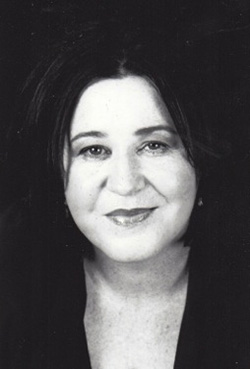Historian Judith Allen Takes A New Look at The "Kinsey Reports"

JUDITH A. ALLEN, Indiana University Professor of History, thinks it is time to revisit the research and findings of Alfred C. Kinsey. “It is amazing,” she says, "how little scholars and Kinsey biographers have explored the making of the two “Kinsey Reports” – Sexual Behavior in the Human Male (1948) and Sexual Behavior in the Human Female (1953).
Here she means the course and process of the research itself, as well as Kinsey’s exchanges with peer scientists, clinicians, scholars, interviewees, and members of the general public. “We know much less than we could and should,” she contends, about the “interpretation and narration,” leading him to the drafting of these substantial texts. With the 70th anniversaries of the establishment of Kinsey’s Institute for Sex Research and the New York Times bestseller-listed Sexual Behavior in the Human Maleahead in 2017 and 2018, she takes a fresh look at Kinsey’s aims and results.
Awarded the inaugural College of Arts and Humanities Institute/Kinsey Institute Fellowship (2016-17), Allen will explore the “daylight” that developed between the two “Kinsey Reports.” The differences between them, she observes, were the outcome of “dramatic changes in Kinsey’s understandings of sexuality,” derived from his analysis of diverse new evidence, more than 12,000 “sex histories.”
Those differences also reflect challenges and assistance that Kinsey received from several key professional women, who also referred many female interviewees. As readers and editors of his two reports, these women persuasively criticized interpretive and methodological limitations. Allen’s view is that the methods, foci and recommendations of the 1953 volume diverged too much from its 1948 predecessor “to sustain its representation as just the second half or completion of the original project.” Instead, it heralded new research priorities, as well as difficult problems. These remained unfinished and unsolved by Kinsey’s 1956 death.
Allen says she is deeply honored by this fellowship, which delivers recipients the precious gift of time. It will enable her to make great progress across 2016-17 on the book she is preparing, Kinsey and the Feminine: The Making of the Second Kinsey Report. With the invaluable support of Institute Director, Sue Carter, she is also looking forward to assisting the Institute’s Head of Collections, Liana Zhou, with an array of planning and development issues, aided by two advanced History graduate student consultants who are researching the Institute’s founding and history, including Kinsey’s collections as a domain of Institute activity. Allen hopes that this historical work contributes well to the Institute’s 70th anniversary, and to Indiana University’s bicentennial celebrations.
Judith A. Allen, joined Indiana University in 1993 to found its Department of Gender Studies. She researches histories of feminist theory and politics, the history of sex research, and histories of interpersonal crimes and of reproduction and sexualities. Author of Sex and Secrets: Crimes Involving Australian Women Since 1880(Oxford University Press, 1990), Rose Scott: Vision and Revision in Feminism, 1880-1925 (Oxford University Press, 1994) and The Feminism of Charlotte Perkins Gilman: Histories/Sexualities/ Progressivism (University of Chicago Press, 2009), she co-edited London Low Life: Street Culture, Social Reform and the Victorian Underworld (Adam Matthew, 2010). In addition to Kinsey and the Feminine, she has a second book in progress, Black Market in Misery: Criminal Abortion and British Sexual Cultures, 1780-1980. She is Associate Editor of the Journal of American History, and Senior Research Fellow of the Kinsey Institute.
Support Kinsey
Love is more than an emotion. It is essential to our individual and collective well-being. Your support will help the Kinsey Institute advance research and education in the science of love and give a diverse field of researchers the resources they need to make new discoveries.
Pledge your support